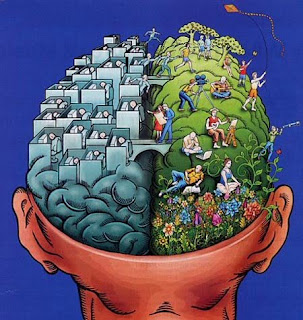If you are not reading Greg Satell‘s (Digital Tonto) blog, you are missing some of the best marketing content on the internet. He is always interesting and informative….and he always makes me wonder how I have gotten this far in life and know so little. Here is an excerpt from his most recent blog posting:
From “Marketing Memes”
Two HuntersGreg then goes on to compare Google, Microsoft, and Apple to Kev and Gav and to discuss how ideas spread.
Memes can spread in lots of different ways for lots of different reasons. Susan Blackmore, in her book The Meme Machine, describes how altruism can spread memes through a story about two successful primitive hunters, Kev and Gav. Kev, is a nice guy who shares his meat while Gav is a bit more selfish and keeps the proceeds from his hunt to himself.
Blackmore notes that Kev will come into contact with more people and they will be more likely to copy his style of hunting (i.e. type of bow and quiver, etc.). Moreover, other memes of his will be transferred as well, such as the type of feathers he adorns himself with, songs he likes to sing, etc..
Gav’s memes won’t be as successful. He won’t spend as much time with others so, whatever his merits, he won’t get copied as much as Kev. As information gets passed down, future generations will be more likely to adopt Kev’s memes than Gav’s.
For the complete post (and all his other excellent articles) go to www.digitaltonto.com
James Snider is a Global Marketing professional, responsible for developing the 3.4 billion dollar 1394/FireWire market. James spent 16 years in marketing with 7 years working at "for profit" companies, 8 years as executive director of a non-profit and the past year as an independent global business development consultant. www.linkedin.com/in/jamessnider









